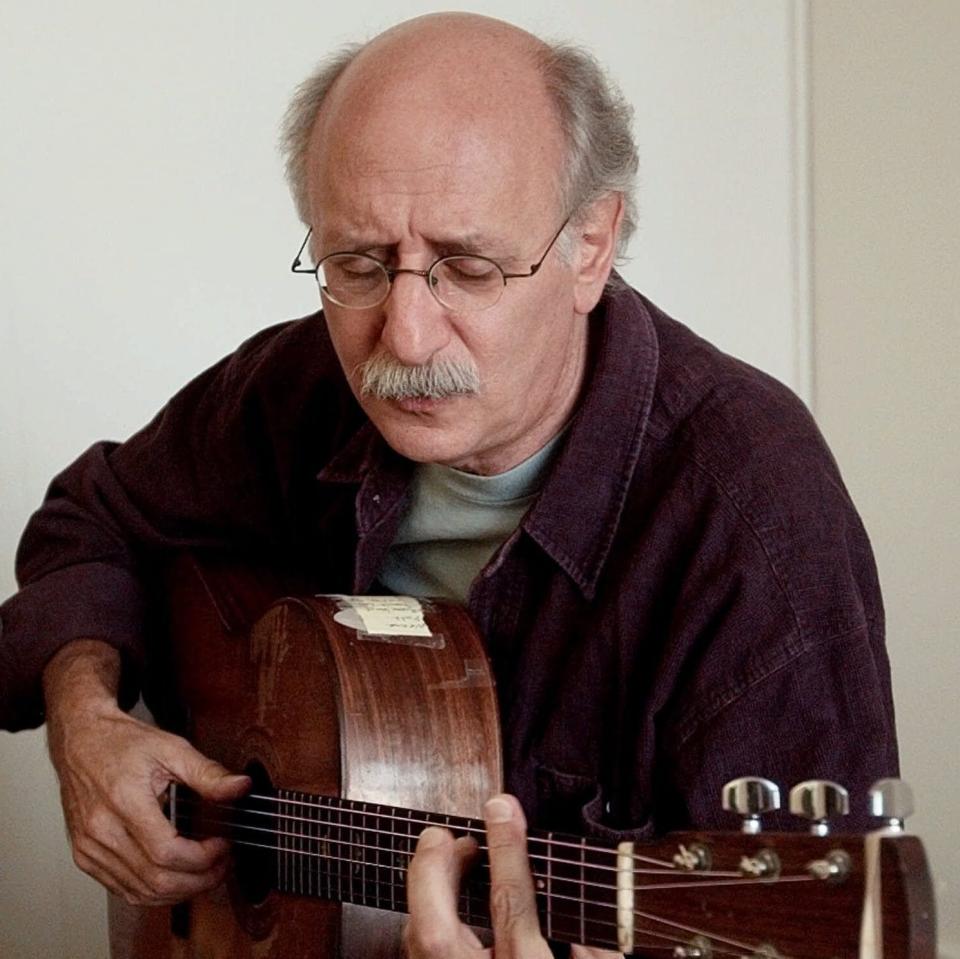Never mind Lil Wayne – meet the disgraced folk star pardoned by Jimmy Carter

Donald Trump has departed the White House with a final flurry of controversy, this time surrounding his dubious list of presidential pardons. More than 140 people have received a pardon or commutation, including his former advisor Steve Bannon, and rappers Lil Wayne and Kodak Black, though Tiger King’s Joe Exotic, heavily rumoured to be in the running, has missed out. The President has already pardoned other questionable figures, including former Arizona sheriff Joe Arpaio, as well as allies Michael Flynn, Roger Stone, Paul Manaford and Charles Kushner.
It might seem a quintessentially Trumpian move, but in fact presidential pardons have often raised eyebrows. Under the Constitution, the President has the power to offer pardons or commutations of sentence for any federal crimes - except in cases of impeachment.
President Gerald Ford pardoned Richard Nixon following the Watergate scandal, while President Clinton’s 140 pardons on his final day included the fugitive billionaire Marc Rich and his own brother, Roger Clinton. But perhaps the darkest decision belongs to President Jimmy Carter, who pardoned folk singer Peter Yarrow after he was convicted of taking “improper liberties” with a 14-year-old girl.
Trump’s selections are hardly angelic. Lil Wayne has already served time in Rikers Island for possession of guns and drugs, and was facing up to 10 years in prison after a loaded, gold-plated handgun was found in luggage on board his private jet. But he’s been a vocal fan of the President, which apparently qualifies him for leniency.
Kodak Black has a string of previous convictions, including armed robbery, sexual assault and false imprisonment of a child. In 2019, he was sentenced to 46 months in prison for making a false statement, lying on a form while attempting to purchase firearms, and in 2020, he also pleaded guilty to firearms possession.

However, it just continues a dubious tradition of presidential pardons - with Yarrow still one of the most disturbing.
Yarrow was one of the 1960s folk trio Peter, Paul and Mary, and co-wrote their most enduring song: “Puff, the Magic Dragon”. The group also had a hit with Bob Dylan’s “Blowin’ in the Wind”, performing it on stage with Martin Luther King in 1963 during his March on Washington - cementing the piece as a civil rights anthem.
However, Yarrow was also convicted of a serious crime. In 1969, a 14-year-old girl and her 17-year-old sister visited his hotel room in Washington, DC, asking for an autograph. Yarrow, around 32 at the time, reportedly answered the door naked. He then made sexual advances, stopping just short of intercourse.
Yarrow pleaded guilty for taking “improper liberties” with the younger girl, and subsequently served three months of a one-to-three-year prison sentence. Later, however, he sought to excuse the behaviour, telling the Baltimore Jewish Times in 2006: “In that time, it was common practice, unfortunately - the whole groupie thing.” Yarrow didn’t seem concerned that one of those ‘groupies’ was actually a child.
So, why did President Jimmy Carter, on his last day in office in 1981, choose to pardon an apparently unrepentant molester? There is some speculation that Yarrow’s political connections played a part: he was then married to the niece of the late Democratic Senator Eugene McCarthy.
In his petition for the pardon, Yarrow expressed his concern that he would have to tell his own children about “the most terrible mistake I have ever made.” He also seemed to argue that his crime should be counterbalanced by his other actions, hoping that his children would see “their daddy did something very wrong” but also has “done much for society to eliminate want and inequality”. He was eager to lessen “the sense of shame” that his offspring might feel.
Nevertheless, the political establishment seemed to re-embrace Yarrow following the pardon. He performed at Senator John Kerry’s wedding and at President Bill Clinton’s inaugural events, and also burnished his activist credentials by playing for the Occupy Wall Street protesters.
But, in 2019, the Colorscape Chenango Arts Festival in New York State was forced to cancel Yarrow’s appearance following a backlash. Many saw this as part of the #MeToo movement - with a newly enlightened society viewing Yarrow’s crime in a very different way.
Certainly, it’s a decision that history has not judged kindly - and with good reason. It's one of the grimmest chapters in this strange tradition of presidential pardons, continued so eagerly by Donald Trump in the final hours of his premiership.


